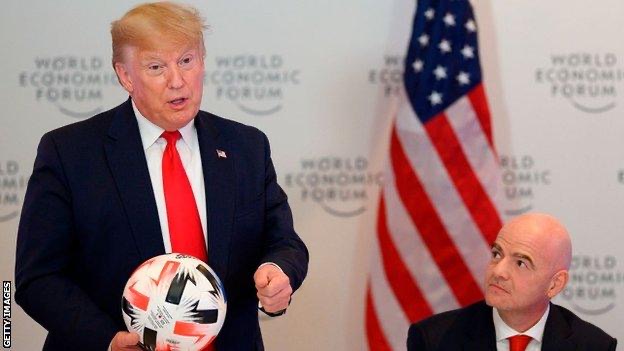FIFA World Cup 2026: Why America Is Set to Make History


America Gears Up to Host the 2026 FIFA World Cup
The United States is preparing to host the 2026 FIFA World Cup, marking the tournament’s return to American soil after more than three decades. This event, co-hosted with Canada and Mexico, is set to be the largest in FIFA’s history, featuring 48 teams and 104 matches across 16 cities. The U.S. will host 78 of these matches, including the final at MetLife Stadium in New Jersey.
Selected Host Cities and Venues
FIFA has announced 16 host cities for the 2026 World Cup, with 11 located in the United States:
Atlanta: Mercedes-Benz Stadium
Boston: Gillette Stadium
Dallas: AT&T Stadium
Houston: NRG Stadium
Kansas City: Arrowhead Stadium
Los Angeles: SoFi Stadium
Miami: Hard Rock Stadium
New York/New Jersey: MetLife Stadium
Philadelphia: Lincoln Financial Field
San Francisco Bay Area: Levi’s Stadium
Seattle: Lumen Field
These venues have been selected for their modern facilities and capacity to host large-scale events.
Infrastructure and Transportation Enhancements
To accommodate the influx of international visitors, host cities are investing in infrastructure improvements. For example, in preparation for the World Cup, roads and highways in host cities are receiving upgrades, including widened lanes, new traffic signals, and improved signage.
Security Measures
Ensuring the safety of players, fans, and officials is a top priority. The National Domestic Preparedness Consortium (NDPC) is offering specialized training to emergency responders in host cities. This training focuses on managing large crowds, coordinating multi-agency responses, and addressing potential threats, ensuring a secure environment throughout the tournament.
Economic Impact and Business Opportunities
The 2026 World Cup is expected to provide a significant economic boost to host cities. Industries such as hospitality, tourism, food and beverage, retail, and media are anticipated to benefit from increased activity. Businesses are encouraged to prepare by implementing bilingual marketing strategies and enhancing customer experiences to cater to international visitors.
Addressing Challenges
While preparations are underway, there are challenges to address. The 2024 Copa América, hosted in the U.S., faced logistical issues, including transportation bottlenecks and security concerns. These events have highlighted the need for detailed and transparent planning to ensure the World Cup runs smoothly.
Conclusion
With comprehensive planning and collaboration among various stakeholders, the United States is poised to deliver a memorable and successful 2026 FIFA World Cup. The nation’s experience in hosting large-scale events, combined with ongoing preparations, underscores its readiness to welcome the world to soccer’s most prestigious tournament.







